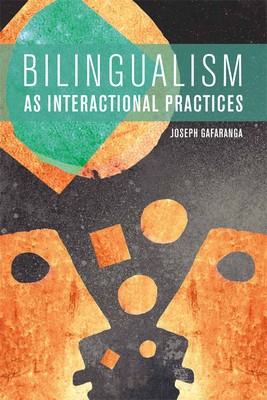
- We will send in 10–14 business days.
- Author: Joseph Gafaranga
- Publisher: Edinburgh University Press
- ISBN-10: 1474431895
- ISBN-13: 9781474431897
- Format: 13.7 x 21.3 x 1.3 cm, softcover
- Language: English
- SAVE -10% with code: EXTRA
Reviews
Description
Foregrounds the practical usefulness of bilingualism, with specific reference to talk organisation Research on bilingualism and on code-switching in particular has traditionally been geared towards rehabilitating bilingualism and bilingual language use. From being seen as a sign of lack of competence, code-switching is now seen as a sign of high competence in the languages involved. However, this rehabilitation of bilingualism raises an entirely new problem: Where to from here? How can the study of bilingualism continue to be interesting and relevant? In order to overcome the challenges the discipline faces as a result of its own success, here Joseph Gafaranga argues, the notion of bilingualism itself must be redefined. Bilingualism must be seen as consisting of diverse interactional practices and investigated as such. This book details the rehabilitation effort which has been undertaken to get us where we are today, proposes a methodology which can be used in moving forward and
illustrates it with three case studies, all the while inviting other researchers to contribute to this new research direction. Key Features Demonstrates empirically how bilingualism can be thought of as a resource, drawing on data from a variety of sociolinguistic contexts Examines specific aspects of conversational organisation (such as turn-taking, sequence organisation, repair organisation) where language choice is used as a resource Investigates the role of language choice in bilingual conversation against the backdrop of clearly set out theoretical backgrounds
- Author: Joseph Gafaranga
- Publisher: Edinburgh University Press
- ISBN-10: 1474431895
- ISBN-13: 9781474431897
- Format: 13.7 x 21.3 x 1.3 cm, softcover
- Language: English English
Foregrounds the practical usefulness of bilingualism, with specific reference to talk organisation Research on bilingualism and on code-switching in particular has traditionally been geared towards rehabilitating bilingualism and bilingual language use. From being seen as a sign of lack of competence, code-switching is now seen as a sign of high competence in the languages involved. However, this rehabilitation of bilingualism raises an entirely new problem: Where to from here? How can the study of bilingualism continue to be interesting and relevant? In order to overcome the challenges the discipline faces as a result of its own success, here Joseph Gafaranga argues, the notion of bilingualism itself must be redefined. Bilingualism must be seen as consisting of diverse interactional practices and investigated as such. This book details the rehabilitation effort which has been undertaken to get us where we are today, proposes a methodology which can be used in moving forward and
illustrates it with three case studies, all the while inviting other researchers to contribute to this new research direction. Key Features Demonstrates empirically how bilingualism can be thought of as a resource, drawing on data from a variety of sociolinguistic contexts Examines specific aspects of conversational organisation (such as turn-taking, sequence organisation, repair organisation) where language choice is used as a resource Investigates the role of language choice in bilingual conversation against the backdrop of clearly set out theoretical backgrounds


Reviews